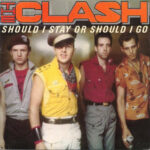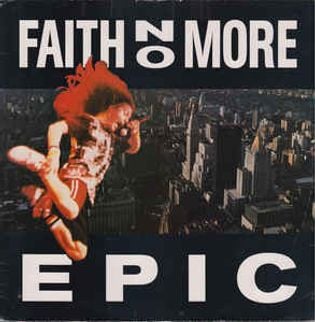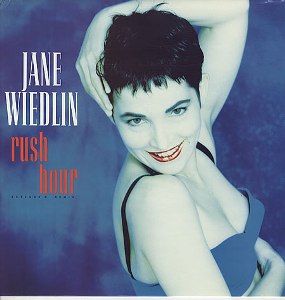 There’s something remarkable about a song that manages to be both rebellious and universally catchy, both impulsive and enduring. “Should I Stay or Should I Go,” released in 1982 as part of The Clash’s album Combat Rock, is one of those songs that stands out not just within the band’s catalog but within the broader landscape of rock music. This was a band known for political bite, cultural commentary, and restless experimentation, yet here they were—delivering a track that sounded like it could have blasted out of a garage, a bar jukebox, or a stadium PA system without missing a beat. The year 1982 was a moment of transition for the band, and this track captures that tension and artistic friction in a way few songs do.
There’s something remarkable about a song that manages to be both rebellious and universally catchy, both impulsive and enduring. “Should I Stay or Should I Go,” released in 1982 as part of The Clash’s album Combat Rock, is one of those songs that stands out not just within the band’s catalog but within the broader landscape of rock music. This was a band known for political bite, cultural commentary, and restless experimentation, yet here they were—delivering a track that sounded like it could have blasted out of a garage, a bar jukebox, or a stadium PA system without missing a beat. The year 1982 was a moment of transition for the band, and this track captures that tension and artistic friction in a way few songs do.
The intro alone is enough to hook listeners: Mick Jones shouting the opening line, a gritty guitar riff that feels equal parts punk and classic rock, and a rhythm section that drives forward with lean, muscular simplicity. While the song became even more famous decades later through pop culture revivals, its roots in 1982 reveal so much about how The Clash functioned at the edge of both creative brilliance and internal conflict. This wasn’t just another punk anthem—it was a snapshot of a band at a crossroads, navigating fame, exhaustion, and clashing visions of their future.
What follows is a deeper look into the song’s origins, its place within The Clash’s evolution, and why a seemingly straightforward rock song has remained so culturally powerful for more than four decades.
The Song’s Birth in a Turbulent Era
“Should I Stay or Should I Go” was primarily written by Mick Jones during a period of serious internal strain within The Clash. By the time Combat Rock was being created, the band had already evolved far beyond their punk beginnings. They had pushed boundaries with London Calling and Sandinista!, exploring reggae, rockabilly, soul, dub, and world music. They were ambitious and restless—and that ambition came with a cost.
Inside the band, creative disagreements were becoming more common. Joe Strummer wanted to pull The Clash back toward a rawer, more disciplined sound, while Jones leaned into melody, polish, and experimentation. Against this backdrop, the song’s central theme—indecision, tension, emotional push and pull—lands with a personal resonance. It’s hard not to hear the band’s own uncertainty embedded within the lyrics.
And yet the music itself feels carefree. The track has a looseness, a swagger, and a spontaneity that makes it sound far simpler than the complicated dynamics that produced it. Jones wrote it with an intentionally straightforward structure: call-and-response vocals, a crisp guitar lick, and a rhythm that leans on the fundamentals of early rock and roll. It wasn’t meant to be a grand statement. It was meant to be fun.
That fun is what gives the track its staying power.
Why the Song Works So Well
One of the defining characteristics of “Should I Stay or Should I Go” is how accessible it is. The Clash had written catchy songs before, but this one was built for immediate recognition. Nearly every element is engineered for maximum hookiness:
1. The opening shout.
Jones’s voice cuts through immediately. There’s no buildup, no slow intro—just an instant jump into the song’s central question.
2. The guitar riff.
It’s simple, gritty, and undeniably satisfying. Punk riffs often carry an abrasive quality, but this one leans into classic rock territory, making it familiar even on first listen.
3. The bilingual backing vocals.
The Spanish responses, courtesy of Joe Strummer and engineer Jose Luis Berlanga, add personality and humor. They also make the song stand out within the rock landscape of the early ’80s.
4. The stop-start dynamics.
The verses bounce with a playful rhythm, while the chorus explodes with the kind of chant-worthy energy that makes people want to shout along.
Despite being so musically direct, the song carries emotional complexity. It captures the anxiety of uncertainty—of wanting someone to make a decision, of feeling stuck in a loop of desire and frustration. It’s a breakup song that avoids melodrama. It’s punk without anger. It’s rock without pretension.
This balance is rare, and it’s why the track resonates across generations and genres.
The Meaning Beneath the Surface
Though the lyrics seem straightforward, they tap into a universal emotional conflict: the push and pull of a relationship on the rocks. The central question—“Should I stay or should I go?”—reflects both a desire for clarity and an inability to take action.
But it’s not a mournful lament. Instead, there’s a defiant tone. The narrator is frustrated but not defeated. He wants an answer but refuses to wallow. There’s humor in the performance, especially in the call-and-response sections, where the backing vocals reinforce just how fed up he is.
Many fans have pointed out how the song could reflect not just romantic indecision but the band’s inner turmoil. Mick Jones would leave The Clash shortly after Combat Rock, and the timing of the song made listeners wonder whether he was subconsciously writing about his own relationship with the band.
Whether intentional or not, that layer of meaning adds a fascinating dimension.
The Song’s Role on Combat Rock
Combat Rock was The Clash’s most commercially successful album, but it was also one of their most divisive internally. “Should I Stay or Should I Go” sits on the album alongside very different tracks: the hypnotic “Straight to Hell,” the politically charged “Know Your Rights,” and the massive radio hit “Rock the Casbah.”
This diversity reflects both the strengths and the tensions of the band at the time. They were pulling in multiple directions, and that creative tug-of-war gave the record its eclectic sound. “Should I Stay or Should I Go” brings a grounding simplicity to the mix—an anchor point that keeps the album from drifting too far into experimentation.
Commercially, it became one of the album’s biggest songs. But at the time, it wasn’t the runaway success it would later become. The track truly exploded years later.
The Unexpected Second Life
A key reason for the song’s lasting impact is how it keeps popping up in new cultural contexts.
Most famously, it re-entered mainstream consciousness through Stranger Things, where the song plays a major emotional role in the first season. Its inclusion in the show introduced The Clash to a new generation, sending the track back up the charts and making it a multi-generational hit.
But even before that, “Should I Stay or Should I Go” had become a staple in sports arenas, jukeboxes, commercials, cover bands, and karaoke stages. It is the rare punk song that crosses into full pop universality.
And that universality is no accident. The song thrives on repetition, instant familiarity, and raw charm—qualities that make it work in almost any setting.
The Enduring Legacy
More than 40 years after its release in 1982, the song remains one of The Clash’s defining tracks. Not because it represents their political side or their experimental ambitions, but because it showcases their ability to write a song that connects instantly with almost anyone.
It has become:
-
A gateway track for new fans discovering punk
-
One of the most recognizable riffs in rock music
-
A cultural shorthand for indecision and restlessness
-
A permanent entry in the canon of great, simple, joyful rock songs
While The Clash are often celebrated for their depth, range, and lyrical insight, “Should I Stay or Should I Go” proves that they could also excel at pure, unfiltered rock and roll. Its staying power comes from its honesty, its humor, and its irresistible hooks.
It’s a reminder that punk doesn’t always have to snarl. Sometimes it can smile, tap its foot, and ask a simple question that everyone understands.


